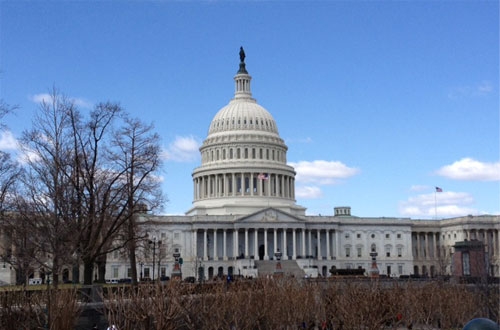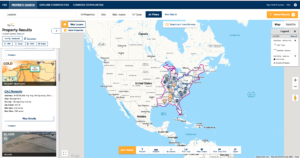U.S. Senate passes $2T stimulus bill; rail/transit to receive billions
Written by William C. Vantuono, Editor-In-Chief, Railway Age
By a unanimous 96-0 vote, the U.S. Senate on March 26 passed H.R. 748, its version of a $2 trillion stimulus package for address the devastating economic and societal impacts of the COVID-19 pandemic. Called the “Coronavirus Aid, Relief and Economic Security (CARES) Act,” it includes many rail-related funding measures of direct benefit to the railway industry—all modes, freight and passenger. H.R. 748 now goes to the House of Representatives, which is expected to put it to a vote on March 27.
A substantial section of the CARES Act contains the provisions specific to rail and other transport modes. In summary, it provides:
- U.S. DOT Operations: $31.3 million in budgetary resources to support activities by the Office of the Secretary, Federal Aviation Administration, Federal Motor Carrier Safety Administration, Federal Railroad Administration, and Maritime Administration to prevent, prepare for, and respond to coronavirus. Funding would support increased needs for telework and information technology, inspection equipment, and preparing and equipping the National Defense Reserve Fleet, Ready Reserve Fleet, the United States Merchant Marine Academy, and State Maritime Academies. FRA Safety and Operations receives $250,000, to remain available until Sept. 30, 2021, to prevent, prepare for and respond to coronavirus.
- Amtrak: $1.02 billion to support Amtrak’s ability to operate passenger rail service on the Northeast Corridor ($492 million) and National Network ($526 million) and protect Amtrak workers.
- States: $239 million to cover the cost of making FAST Act-required payments to Amtrak for state-supported routes
- Transit: $24.9 billion for grants to transit agencies nationwide for operating expenses of those agencies to ensure continued operation of transit services. It also eliminates any requirement that transit agencies use their own funds to receive federal assistance, and maintains key worker protections. The legislation approved by the Senate will allocate $22.7 billion for large and small urban areas and $2.2 billion for rural areas.
- Transit Infrastructure Grants: $25 billion awarded via formula, 100% Federal share. The formula is based on FY 2020 allocations for Urbanized Area Formula Grants, Non-urbanized Area Formula Grants, State of Good Repair and High Density and Growing States.
- Railroad Unemployment Insurance: Enhanced benefits and extended unemployment benefits. The bill waives the seven-day waiting period for filing, increases benefits to $1,200 biweekly through July 2020, and allows the RRB (Railroad Retirement Board) to utilize approximately $130 million in leftover ARRA (American Reinvestment and Recovery Act of 2009) funds to be accessed for extended benefits through December 2020. It also provides RRB $5 million in administrative costs.
The pages in this PDF document that address rail are 140-143, 186, 193, 511, 579, 594, 771, 836-841, and 874-875. The PDF is searchable using the Command-F key combination.
The entire 880-page section can be downloaded here:
Editor’s Note: Interestingly, the numbers 7, 4 and 8 in H.R. 748 add up to 19—a coincidence?
U.S. Secretary of Transportation Elaine L. Chao joined Federal Transit Administration (FTA) Acting Administrator K. Jane Williams for a live briefing with more than 1,500 transit industry leaders “to share the agency’s response to the coronavirus (COVID-19) pandemic,” FTA said in a statement. “During the call, Secretary Chao thanked the nation’s transit agencies for their efforts to maintain service during the health crisis and highlighted the legislation currently working its way through Congress that will provide $25 billion in emergency relief to transit systems nationwide. The Secretary also announced that FTA will extend current competitive grant program funding opportunities for 30 days. In addition, she highlighted the actions taken by FTA in response to the crisis, including new flexibility that allows agencies to use existing federal formula funds for emergency-related capital and operating expenses at an increased 80% federal share.”





